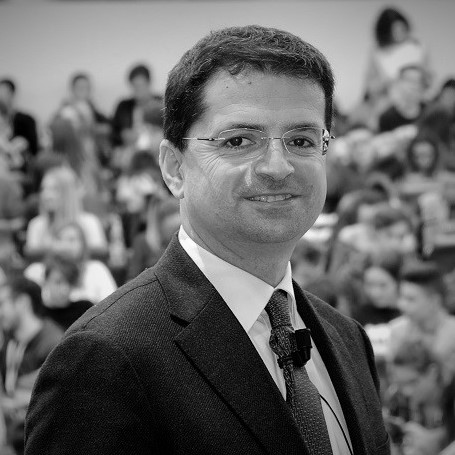Past Event
Zombie firms and weak productivity: what role for policy?
At this event, we will have the chance to discuss the final findings of OECD's project on Exit Policies and Productivity Growth, which started at the end of 2015.
Video and audio recording
There is growing recognition that the productivity slowdown experienced over the past two decades is partly rooted in a rise of adjustment frictions that rein in the creative destruction process. One important dimension of this phenomenon is that firms that would typically exit or be forced to restructure in a competitive market – i.e. “zombie” firms – are increasingly lingering in a precarious state to the detriment of aggregate productivity. In this view, reviving productivity growth will partly depend on the policies that effectively facilitate the exit or restructuring of weak firms, while simultaneously coping with any social costs that arise from a heightened churning of firms and jobs.
Findings from this new OECD project suggest that there is a wide scope for improving the design of insolvency regimes as measured by new cross-country indicators. It also shows that the survival of zombies is related to faltering bank health and the persistence of tax bias towards debt. Building on a large volume of cross-country research, the project presents evidence on the potential for reforms in the area of insolvency, banking supervision and taxation to revive aggregate productivity growth by facilitating the restructuring or exit of weak firms. Coupling these reforms with parallel changes in competition and social policies is shown to boost the productivity gains while minimizing the associated social costs.
Event materials
Presentation by Dan Andrews and Giuseppe Nicoletti
SUMMARY
At this event, Dan Andrews and Giuseppe Nicoletti presented results from the new OECD’s project on exit policies and productivity growth, focusing on so-called “zombie” firms, i.e., firms that would typically exit or be forced to restructure in a competitive market. The increasing lingering of such firms in a precarious state is an important dimension in the current productivity slowdown, as they hold back creative destruction potential.
The presentation pointed out that aggregate data on productivity conceal micro-level patterns, which suggest that along with raising productivity dispersion and declining efficiency of reallocation, there is evidence of distress on the exit margin, as entry is declining and weak firms are increasingly surviving. In particular, delaying exit or restructuring can (i) drag down average productivity, (ii) consume resources for healthier firms, and (iii) create barriers for potentially innovative young firms to enter. Findings suggest that healthy firms invest less the more capital is hold by zombies, and particularly so for young and more productive firms, thus hampering productivity by crowding-out credit availability to healthy firms. In this view, there is a wide scope for improving the design of policies that facilitate exit or restructuring of weak firms as measured by new cross-country indicators. In particular, insolvency reforms can reduce zombie congestion and boost reallocation, as well as revive productivity growth for laggard firms via technological diffusion. Results also show that survival of zombies is related to faltering bank health and the persistence of tax bias towards debt, thus calling for complementary measures to address NPLs and capitalization of banks, as well as promoting non-bank financing. At the same time, there is a need to minimize the social costs associated with job destruction, by coupling reforms with well-designed competition and social policies, in particular active labour market policies.
Carlo Altomonte highlighted that zombie firms seem to be an outcome of the wider phenomenon of insufficient catch-up by laggards. Therefore, understanding what is hampering technological catch-up should also be a priority for policy makers. Importantly, care should be taken when identifying zombie and laggard firms, as an overlap is likely but not guaranteed. Moreover, caution is advised on causal interpretation of negative effects from zombie capital to bank credit availability for healthy firms. For example, if a sector is hit by a shock in a country-year, it might experience both a rise of zombie firms and a contraction of credit to healthy firms. Finally, there appears to be large heterogeneity in access of firms to finance, irrespective of productivity, as well as a negative relation between credit constraints and size, after controlling for productivity and firm characteristics. Thus, large firms, rather than the most productive, seem to be preferred for credit, which means that while insolvency reforms should go hand in hand with bank health, it is also important to promote more productivity-dependant lending models.
Finally, among other issues, the discussion also highlighted the potential heterogeneity between manufacturing and services, possible relevance of easy monetary policy for zombie firms’ survival, and the underlying importance of product market competition.
Event notes by Francesco Chiacchio, Research Assistant.
Schedule
12:00-12:30
Check in and lunch
12:30-13:00
Presentation
Chair: Reinhilde Veugelers, Senior Fellow
Dan Andrews, Deputy Head of Structural Policy Analysis Division, Economics Department, OECD
Giuseppe Nicoletti, Head of Structural Policy Analysis Division, Economics Department, OECD
13:00-13:15
Comments
Carlo Altomonte, Non-Resident Fellow
13:15-14:00
Q&A
14:00
End
Speakers

Carlo Altomonte
Non-Resident Fellow

Dan Andrews
Deputy Head of Structural Policy Analysis Division, Economics Department, OECD

Giuseppe Nicoletti
Head of Structural Policy Analysis Division, Economics Department, OECD

Reinhilde Veugelers
Senior Fellow
Location & Contact
Matilda Sevon
[email protected]
